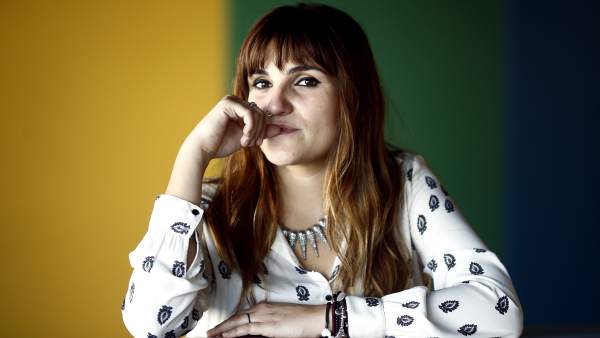Rozalén: "I feel I can not write what I want for fear of justice"

The singer is convinced that in previous decades "there was more freedom of expression than nowadays".
LIST: What is the best song of Rozalén?
Despite the determination of her words and ideals and "not having a hair on the tongue", the singer Rozalén feels that she can not tell what she wants and how she wants because of "fear of justice", convinced that in previous decades "there was more freedom of expression than nowadays".
Within the tight schedule that takes her through Spain and with which she will soon pack Latin America with her tour Cuando el río suena ..., María de los Ángeles Rozalén, better known by her last name on the southern plateau, makes a hole to reflect on several current issues, on the occasion of Saturday's concert in the capital of Valladolid.
"I am totally against violence and certain comments," he clarifies at the beginning, but from there to condemn someone for his thoughts or his work "there is a great stretch," he says, fully convinced that in previous decades "there was more freedom of expression than nowadays ".
And that for Rozalén many aspects of social networks and new forms of communication have become "hate spits" where people express their "darkest and sordid comments without any capacity for empathy."
It is that word, empathy, that comes out most of the singer's lips; a quality that people are losing and that manifests itself in diverse problems before which Rozalén can not feel alienated and that moves his songs with "protest" letters that try to "awaken something".
With that drowned accent so his own and accompanied by his inseparable bandurria, Rozalén sees far that 2012 when he decided to leave his native Letur (Albacete) to settle in the Madrid neighborhood of Lavapiés, where, after years of kicking off La Mancha with his art, he managed to take to the market its first album With right to ... (2013) with which the fame and affection of the public soon arrived. "It's been five years of vertigo, I'm still assimilating," he says now.
They are those ellipsis that always accompany their work, Who has seen me ... (2015) and When the river sounds ... (2017) a direct interpellation to the listeners but also an evidence that there are certain issues in which not everything is said and "open wounds" that have not "finished healing" in society.
To one of these wounds without stitches is to which Rozalén has dedicated one of his last singles, which is named after his great uncle Justo, who for eighty years is in one of the thousands of common graves that still they remain in Spain excavated during the Civil War and that they are "the faithful reflection of an injustice" and the most reliable evidence of "the inability of the human being to put himself in the skin of the other".
In addition to its commitment to historical memory, Albacete has championed the struggle for gender equality, a problem that is still "far from being solved", but to which "so much inequality" finally comes up with "a little light" thanks to the "feminist struggle". "Most people are feminist, they just do not know it," he says.
Criticism, vindication and protest, but also love, sensitivity and empathy are just some of the qualifiers Rozalén likes for his music, the one that has led to the numbers one of the radios in Spain and to break down barriers that until now seemed insurmountable , how to reach the deaf public with their songs performed in sign language and that is music "a vehicle to cross horizons", he concludes.